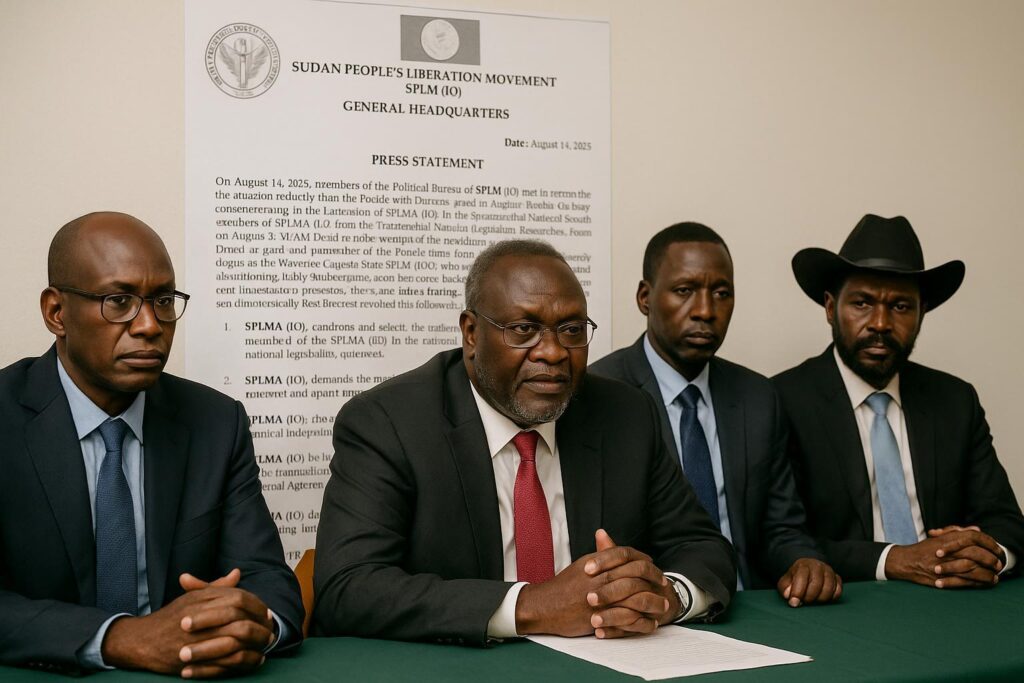Decrees Prompt SPLM-IO Outcry
President Salva Kiir signed a cluster of decrees on 13 August removing eight SPLM-IO figures from parliament, the cabinet and Upper Nile State. The move gained momentum after earlier dismissals on 6 August, sparking sharp response from the opposition movement.
Eng. Joseph Malwal Dong called the expulsions “a blatant breach” of the 2018 Revitalized Agreement, demanding immediate reinstatement. The Political Bureau warned unilateral decisions risk reversing fragile gains achieved since the 2020 formation of the unity government.
Government’s Position
Presidential press secretary Ateny Wek Ateny told national radio the dismissals were “purely administrative and constitutional,” arguing the president retains authority to reshuffle appointees. He insisted Juba remains fully committed to the peace roadmap and elections slated for late 2024.
Peace Accord Under Strain
Analysts note the Revitalized Agreement allocates government posts through a delicate share-out: 55 % SPLM-IG, 27 % SPLM-IO, 18 % opposition alliances. Reassigning seats without consensus, they say, upsets that arithmetic and could erode trust ahead of security unification.
“These decrees undermine the letter and spirit of the accord,” argued Dr. Abraham Kuol, political scientist at the University of Juba. He added that both camps must “return to the negotiation table before grievances spill onto the streets.”
Regional Mediation Steps
IGAD mediators are reportedly arranging shuttle diplomacy between Kiir and First Vice-President Riek Machar, who remains under limited movement in Juba. Envoys from the African Union and Troika have urged calm, emphasising that delayed security reforms already pressure the timetable.
Regional analysts caution that renewed fighting would destabilise oil transit corridors critical to both Juba and Khartoum, amplify humanitarian needs for nine million South Sudanese, and reverberate across Central and Eastern Africa struggling with simultaneous crises.
What Next for the Peace Path?
Diplomats say reinstatement of dismissed officials could restore confidence quickly. Failing that, a high-level summit backed by IGAD may craft a fresh implementation matrix spelling out security graduation, constitutional drafting, and the long-awaited census before polls.
For now, streets of Juba remain calm, yet the political temperature is unmistakably rising. Citizens, weary of war, watch elite manoeuvres closely, hoping the fragile accord endures long enough to deliver the first peaceful ballot in the young nation.


